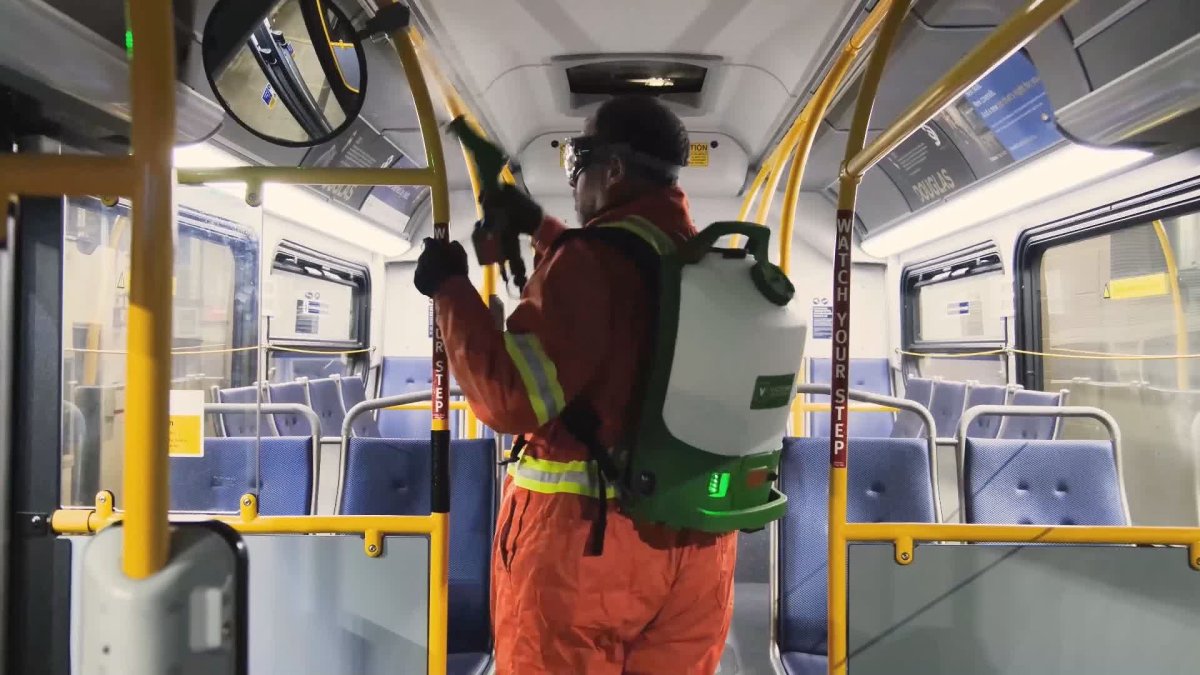TransLink ridership is down more than 80 per cent due to the novel coronavirus pandemic, and the transit agency warns it could face insolvency if federal and provincial governments don’t step in with funding.

The transit authority said in a news release on Tuesday that it’s been shedding $75 million per month because of a massive drop in ridership, ever since the province enacted strict measures around physical-distancing to curb the spread of the virus.
Although the transit agency has implementing cost-cutting measures, TransLink Mayors’ Council chair Jonathan Coté said it’s facing insolvency as early as June without assistance.
Coté suggested the agency needed $250 million to ensure the system stays operational for the rest of the year.
“The type of cuts that we’re talking about are going to be massive and going to hit every part of the organization,” he said.
“These are going to be dramatic changes that will affect all aspects of our transit system, and there will be some elements of our transit system that will no longer exist.”
The mayors’ council and the TransLink board of directors will hold emergency meetings this week to discuss scenarios, he said, adding that nothing is being ruled out — entire bus routes, major infrastructure projects, or other assets the agency owns.

Get daily National news
https://omny.fm/shows/the-simi-sara-show/translink-losing-money-fast-looking-for-help-from/embedBus, SkyTrain, West Coast Express and SeaBus are essential services, and revenues have dropped by half since mid-March.
The agency has slashed bus service by 10-20 per cent, and reduced SeaBus sailings and SkyTrain and West Coast Express service.
Higher fares won’t be enough to fill the funding gap, Cote said, and would likely decrease ridership further.
“It’s a dire situation which will force us to cancel entire routes and significantly reduce service levels on all transit modes, meaning far longer wait times and much more crowding for customers,” TransLink CEO Kevin Desmond said.

TransLink recently revealed that boardings across its entire network in Metro Vancouver have declined 83 per cent since mid-March. Bus ridership is down 82 per cent, SeaBus is down 90 per cent, and the West Coast Express is down 95 per cent.
The transit authority suspended bus fares on March 19 to allow for only rear-door boarding to abide by social-distancing rules as directed by public health officers. A fare increase scheduled for July 1 has been delayed.
It has also limited seating capacity, increased cleaning and sanitization measures, and sped up the installation of more driver barriers.
Like many other businesses, the problem for TransLink is not just how to operate throughout the coronavirus pandemic but also how to offer services when physical-distancing measures are relaxed.
“I think having a viable transit system and transportation system is going to be part of the recovery and I do worry the choices and decisions being made now are actually going to hamper our region during that very difficult period,” Coté said.
The revenue shortage will impact all aspects of TransLink’s operation, including its accessible transportation service, HandyDART.
– With files from Sean Boynton
- NDP to join Bloc in backing Liberals against non-confidence vote
- Quebec premier calls on Bloc Québécois to help topple Trudeau government
- Via Rail CEO calls 10-hour train delay ‘unacceptable,’ says new evacuation plan in place
- Ethics commissioner will not investigate Boissonnault over ‘Randy’ texts, says the matter is closed








Comments